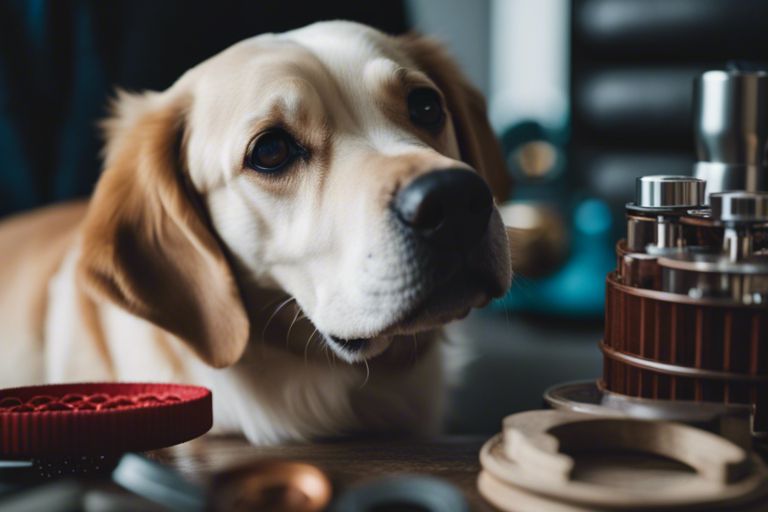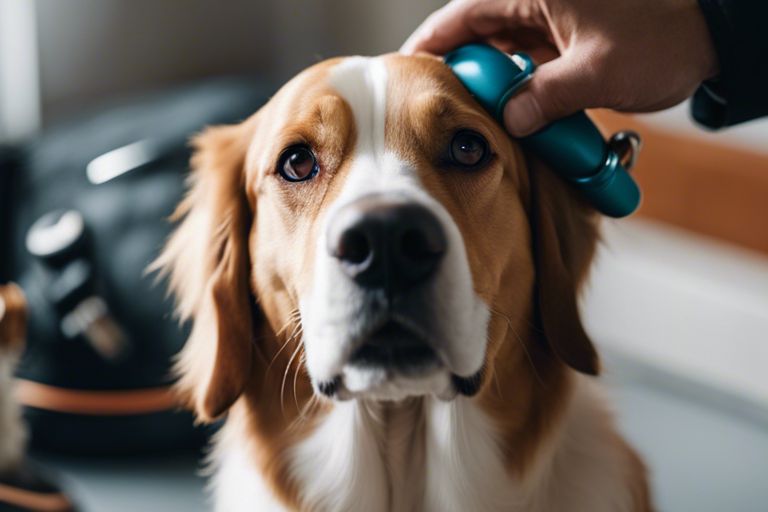With a calm and assertive approach, mastering the muzzle and understanding its proper use can be a game-changer when dealing with challenging behavior in our furry friends. Just like the famous “Dog Whisperer” Cesar Millan would advise, patience and persistence are key when addressing tough behavior challenges. In this guide, we will investigate into how to tackle difficult behavior issues with the right tools and techniques, ultimately creating a harmonious relationship with our beloved pets.
Key Takeaways:
- Patience is key: When dealing with tough behavior challenges, it is crucial to remain patient and calm. Bear in mind, dogs can sense your energy, so staying composed will help in resolving the issue.
- Consistent training: Implementing consistent training routines is crucial for modifying unwanted behaviors. Repetition and reinforcement will help your dog understand what is expected of them.
- Seek professional help: If you are struggling to tackle tough behavior challenges, don’t hesitate to seek professional help. A professional dog trainer or behaviorist can provide guidance and support to address the issue effectively.
Identifying the Roots of Tough Behavior
Before submerging into modifying tough behavior, it is crucial to identify the underlying causes that may be triggering such challenges. Understanding the roots of a dog’s tough behavior is fundamental in implementing effective solutions.
Recognizing Triggers and Patterns
One key aspect of tackling tough behavior is recognizing the triggers and patterns that precede the challenging actions of your furry friend. By carefully observing your dog’s behavior in different situations, you can start to pinpoint the specific triggers that lead to undesirable actions. Whether it’s a certain noise, a particular person, or a specific environment, identifying these triggers is the first step towards addressing tough behavior effectively.
Uncovering Underlying Causes
Tough behavior in dogs can often stem from underlying causes that are not immediately apparent. These causes may include fear, anxiety, past trauma, lack of socialization, or even medical issues. It is vital to examine deeper into your dog’s history, environment, and experiences to uncover these underlying causes and address them appropriately.
Tough behavior can sometimes be a symptom of a more significant issue that your dog is facing. Whether it’s a past traumatic experience, lack of socialization, or an undiagnosed medical condition, uncovering these underlying causes is vital in effectively addressing tough behavior challenges.
Recognizing the Signs
Building a Strong Foundation
Clearly, the key to successfully addressing tough behavior challenges in dogs is to start by building a solid foundation. This involves establishing clear boundaries and rules, creating a consistent environment, and setting the stage for positive behavior.
Establishing Clear Boundaries and Rules
One of the first steps in building a strong foundation is establishing clear boundaries and rules for your dog. Dogs thrive on structure and knowing what is expected of them. By setting consistent boundaries and rules, you are providing your dog with a sense of security and a framework for good behavior.
Creating a Consistent Environment
Establishing a consistent environment is crucial in shaping your dog’s behavior. Dogs rely on predictability and routine to feel secure and understand their place in the pack. By maintaining a consistent schedule, feeding times, exercise routine, and rules, you are helping your dog feel stable and confident in their environment.
Patience and Persistence in Action
Using Positive Reinforcement Techniques
Unlike harsh punishments or forceful techniques, positive reinforcement focuses on rewarding good behavior to encourage more of it. Any successful training program involves consistent praise, treats, or other rewards when your pup displays desirable behaviors. This method helps them associate good behavior with positive outcomes, increasing the likelihood of them repeating that behavior in the future.
Managing Frustration and Anger
Reinforcement, keeping your cool in challenging situations is crucial. Dogs are adept at picking up on human emotions, so getting frustrated or angry can escalate a situation quickly. When you feel your frustration levels rising, take a step back, breathe deeply, and refocus on the task at hand. Note, your dog looks to you for guidance and stability, so remaining calm is key to diffusing tough behavior challenges.
To effectively manage frustration and anger, consider taking short breaks during training sessions to regroup and compose yourself. Dogs respond best to calm, assertive leadership, and maintaining your composure will help you make clearer decisions and handle tough behavior challenges more effectively.
Tackling Common Behavioral Challenges
Addressing Fear and Anxiety
To tackle fear and anxiety in dogs, it’s important to first understand the root cause of their emotions. Often, these feelings stem from past traumatic experiences or lack of socialization. Patience is key when dealing with fearful dogs, as forcing them into uncomfortable situations can exacerbate their anxiety. Gradual exposure to new environments and positive reinforcement can help build their confidence over time.
Dealing with Aggression and Defensiveness
Aggression and defensiveness in dogs can be challenging but not impossible to overcome. Understanding the triggers that cause these behaviors is crucial to addressing them effectively. It’s crucial to remain calm and assertive when faced with aggressive behavior, as reacting with fear or anger can escalate the situation. Consistent training, clear boundaries, and seeking professional help when needed are all vital steps in managing and modifying aggressive tendencies in dogs.
Behavioral challenges such as aggression and defensiveness can be signs of underlying issues that need to be addressed. It’s crucial to approach these challenges with empathy, understanding that these behaviors are often a result of fear, insecurity, or past trauma. With patience, consistency, and positive reinforcement, dogs can learn to overcome these challenges and become well-balanced, happy pets.
Advanced Techniques for Tough Cases
All
- Desensitization and Counterconditioning
- Redirecting Unwanted Behaviors
Desensitization and Counterconditioning
Desensitization and counterconditioning are powerful techniques used to change how a dog feels about a particular trigger or situation that causes them to display unwanted behaviors. This process involves gradually exposing the dog to the trigger at a low intensity while pairing it with something positive, such as treats or praise, to create a new, positive association.
By slowly increasing the intensity of the trigger over time and consistently rewarding calm, relaxed behavior, you can help your dog overcome their fear or anxiety and learn to react in a more appropriate manner.
Redirecting Unwanted Behaviors
An effective way to tackle unwanted behaviors is to redirect your dog’s focus onto something more positive and desirable. By providing an alternate behavior that is incompatible with the unwanted behavior, you can help your dog make better choices and break the cycle of negative behavior patterns.
For instance, if your dog tends to jump on guests when they arrive, you can teach them to go to their bed and stay there when the doorbell rings. This not only redirects their energy in a more appropriate direction but also helps them learn self-control and impulse management.

Overcoming Setbacks and Staying Motivated
Learning from Mistakes and Failures
To master the muzzle and tackle tough behavior challenges with your furry friend, it’s important to understand that setbacks are a natural part of the learning process. Not every training session will go perfectly, and mistakes or failures are bound to happen. Instead of getting discouraged, use these moments as opportunities for growth. Reflect on what went wrong, analyze why it happened, and adjust your training approach accordingly. Keep in mind, every misstep is a chance to learn and improve your skills as a pet owner.
Celebrating Small Victories
Setbacks can be disheartening, but it’s crucial to maintain your motivation by celebrating the small victories along the way. Whether your pup successfully wears the muzzle for a few minutes longer than before or shows improvement in a specific behavior, acknowledge and praise these achievements. Small victories pave the way for more significant progress and reinforce positive behavior in your furry friend. Each small win is a step in the right direction towards mastering the muzzle and building a strong bond with your pet.
Setbacks are a natural part of the training journey, but by staying positive and focusing on progress, you can overcome challenges with patience and persistence. Keep in mind, every step forward, no matter how small, is a step in the right direction towards mastering the muzzle and creating a harmonious relationship with your canine companion.
Final Words
Following this guide on mastering the muzzle and dealing with tough behavior challenges with patience and persistence, you can effectively address behavioral issues in your furry companions. Do not forget, consistency, calmness, and clear communication are key when working with challenging behaviors. By approaching the situation with understanding and a willingness to work through the challenges, you can help your pet become a well-behaved and happy member of your family.
FAQ
Q: Why is mastering the muzzle important when tackling tough behavior challenges?
A: Mastering the muzzle is important because it can help keep both you and your dog safe during training sessions. It can also prevent your dog from exhibiting unwanted behaviors, allowing you to focus on correcting their behavior effectively.
Q: How can patience help in addressing tough behavior challenges in dogs?
A: Patience is key when dealing with tough behavior challenges in dogs because it takes time for them to unlearn bad habits and form new, positive behaviors. By being patient and persistent in your training, you can help your dog understand what is expected of them.
Q: What role does persistence play in mastering tough behavior challenges with your dog?
A: Persistence is necessary when tackling tough behavior challenges with your dog because consistency is key in reinforcing good behavior. By consistently addressing and correcting unwanted behaviors, you can help your dog understand boundaries and expectations, leading to lasting changes in their behavior.

